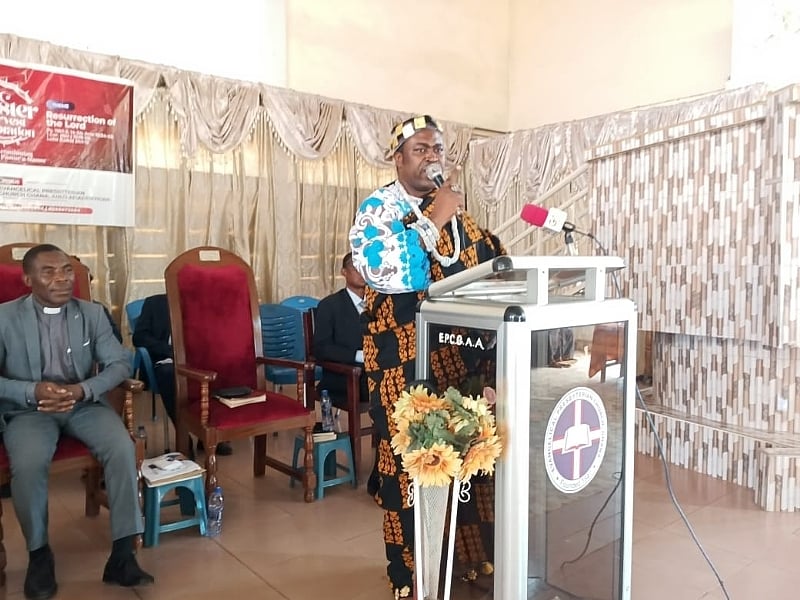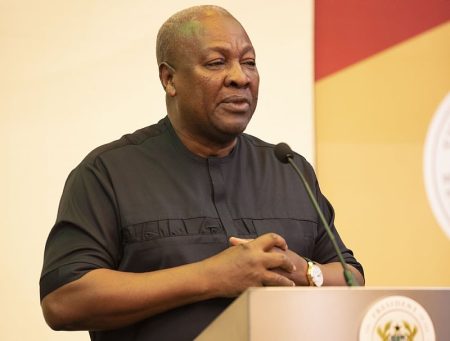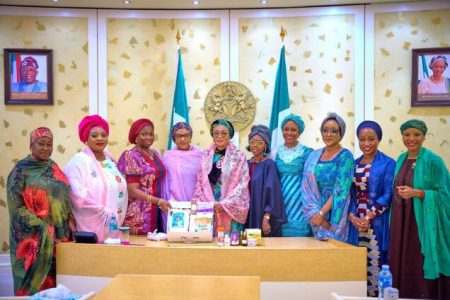The 36th Annual Conference of the National Catechists and Evangelists Union of the Evangelical Presbyterian Church, Ghana (EPCG), held at Anlo Afiadenyigba, served as a platform for crucial discussions on the role of catechists and evangelists in caring for creation. The conference, themed “Care for Creation, the Task and Mission of the Catechist,” brought together representatives from all 16 presbyteries of the church, providing an opportunity for reflection, renewal, and strategic planning. A key message delivered by Apostle Togbe Kadzaho Dzamase IV, Dufia of Anlo Afiadenyigba, emphasized the importance of spiritual integrity for catechists and evangelists. He urged them to resist the allure of worldly pleasures and remain steadfast in their commitment to righteousness, allowing themselves to be guided by the Holy Spirit. This call to spiritual purity underscored the essential role of personal conduct in effectively ministering to others and representing the values of the church.
The conference also addressed the relationship between traditional leadership and the church. Apostle Togbe Dzamase expressed concern over the misperception among some religious leaders that traditional leaders are heathens, leading to a disconnect between the two groups. He advocated for mutual respect and unity, emphasizing the role of chiefs as custodians of the land. The Apostle’s message highlighted the importance of bridging the gap between religious and traditional institutions, recognizing the shared responsibility for the well-being of the community. He further emphasized the accountability of religious leaders for the spiritual welfare of traditional rulers, underscoring the interconnectedness of their roles in shaping society.
Rev. Dr. Lawson Kwaku Dzanku, Clerk of the General Assembly of the EPCG, echoed the conference theme by emphasizing the responsibility of catechists to care for themselves as part of God’s creation. This self-care, he argued, is essential for effectively caring for others and fulfilling their role as stewards of God’s creation. He urged them to utilize their time wisely for personal and communal benefit, emphasizing the importance of stewardship. Dr. Dzanku acknowledged the shortcomings in caring for creation, attributing the numerous challenges faced by humanity to this failure. This acknowledgment served as a call to action, urging the catechists to actively engage in environmental stewardship.
Presbyter William Amegah, representing the Presbyters Union of the Church, addressed the importance of unity and collaboration within the church. He cautioned against undermining fellow church leaders for personal gain, emphasizing that such behavior hinders both individual and collective growth. His message underscored the need for a cohesive and supportive environment within the church to foster spiritual and physical development. This call for unity emphasized the importance of shared purpose and mutual respect among church leaders in fulfilling the mission of the church.
The conference provided a platform for insightful reflections on the vital role of catechists and evangelists in the EPCG. Apostle Togbe Dzamase’s emphasis on spiritual integrity and the relationship between the church and traditional leadership set the tone for the conference’s focus on holistic ministry. Dr. Dzanku’s message on caring for creation as a prerequisite for caring for others further reinforced the conference theme, while Presbyter Amegah’s call for unity within the church highlighted the importance of internal harmony.
The overarching message of the conference centered on the interconnectedness of personal spirituality, environmental stewardship, and community building. The call for catechists and evangelists to prioritize spiritual integrity, care for creation, and foster unity within the church emphasizes their crucial role in the growth and development of the EPCG. The conference theme, “Care for Creation, the Task and Mission of the Catechist,” served as a powerful reminder of the holistic nature of ministry and the multifaceted responsibilities of these essential figures within the church community. The emphasis on nurturing the Children’s Ministry further underscores the importance of investing in future generations and ensuring the continued vitality of the church.














